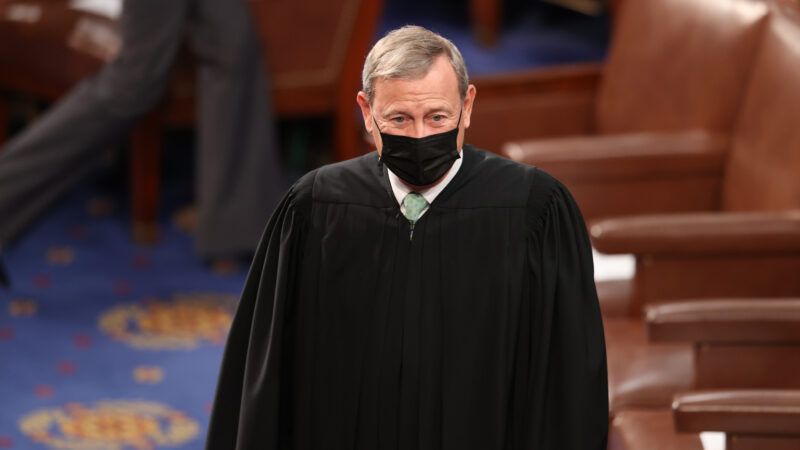School Choice Returns to the Supreme Court
The justices heard oral arguments this week in Carson v. Makin.

In Espinoza v. Montana Department of Revenue (2020), the U.S. Supreme Court said that if a state provides educational subsidies that help parents send their children to private schools, then the state "cannot disqualify some private schools solely because they are religious." It was a big win for both school choice and religious liberty advocates.
Those advocates may now be on the cusp of another victory. The Supreme Court heard oral arguments on Wednesday in Carson v. Makin, a case which asks whether Maine's tuition assistance program ran afoul of the Constitution by excluding private schools that offer "sectarian" education.
Religious schools "satisfy every secular requirement to participate in the tuition assistance program. It is only because of religion that they are excluded," said Michael Bindas, the lawyer for the family challenging the policy. "You can call that discrimination based on religious use. You can call it discrimination based on religious status. Either way, it is discrimination based on religion, and either way, it is unconstitutional."
Christopher Taub, the chief deputy attorney general for the state of Maine, offered a different view. "This Court has made clear that the government is entitled to define the scope of a financial benefit in order to advance its own value judgments, even when doing so might disadvantage activity protected by the First Amendment," Taub told the Court. "If the federal government can provide funding to family planning services on the condition that it not be used to discuss abortion, a state should be allowed to condition paying a child's tuition on the condition that the school not promote religious beliefs."
"Let's suppose you have two schools," Chief Justice John Roberts said to Taub. "School A is run by Religion A," which has nothing in its "doctrine about propagating the faith…so it does look just like a public school, but it's owned by religion." Meanwhile, "Religion B also has a school, and its doctrine requires adherence to educate children in the faith."
"Would the first school get the funds?" Roberts asked Taub.
"Yes," the state lawyer replied.
"Would the second school?" Roberts followed up.
"No," Taub answered. "Because [Religion B's] program is specifically instilling and promoting religion in students."
"And the other religion does not," Roberts clarified.
"That is correct," Taub confirmed.
"So you're discriminating among religions based on their belief, right?" Roberts concluded.
Taub rejected that characterization but it was far from clear that a majority of the Court was willing to see things his way.
A decision in Carson v. Makin is expected by late June.


Show Comments (103)